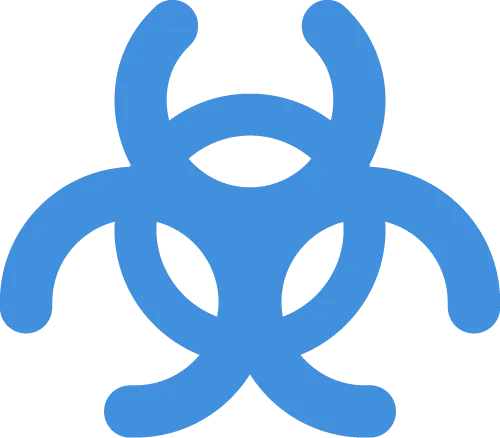
Urgent Alert: Suspected Marburg Virus Outbreak in Tanzania Raises Concerns
2025-01-14
Author: Mei
Situation Overview
The World Health Organization (WHO) has raised alarm bells over a suspected outbreak of Marburg Virus Disease (MVD) in Tanzania's Kagera region, with reports surfacing as early as January 10, 2025. The situation escalated rapidly, prompting the WHO to alert its member states and international health authorities about the potential health crisis unfolding in the area.
Details of the Outbreak
As of January 11, 2025, there were nine suspected cases of MVD reported, tragically leading to eight fatalities, resulting in an alarming case fatality ratio (CFR) of 89%. Symptoms displayed by the affected individuals included severe headache, high fever, and gastrointestinal distress, culminating in external bleeding in the later stages of the disease.
This isn’t the first time Tanzania has faced such a grave threat; a similar MVD outbreak was recorded in March 2023 in Bukoba district, where the zoonotic reservoirs—fruit bats—are prevalent. That earlier outbreak claimed six lives out of nine reported cases and lasted nearly two months.
Public Health Response
In light of the burgeoning crisis, national rapid response teams have been deployed, focusing on intensive surveillance and contact tracing. Treatment units have been established, and samples from affected patients are currently undergoing testing at the National Public Health Laboratory. A mobile laboratory has also been stationed in the Kagera region to facilitate quick analysis.
Geographic and Regional Implications
The outbreak poses serious threats beyond Tanzania's borders, especially given Kagera's strategic location as a transit hub facilitating movement between Rwanda, Uganda, Burundi, and the Democratic Republic of the Congo. Some of the suspected cases being reported in border areas raise concerns about the potential for international spread. Although MVD is not easily transmissible without direct contact with infected individuals' bodily fluids, the risk remains significant, particularly among healthcare workers who have treated the infected.
While the global risk is assessed as low, there is an urgent need for countries in the region to enhance surveillance and readiness, especially at points of entry and borders. Health officials are advised to prioritize close coordination with neighboring nations to safeguard against the potential escalation of the outbreak.
WHO Recommendations for Control
The WHO emphasizes essential preventive measures to stem the tide of transmission:
1. **Avoid Close Contact:** Individuals should refrain from close proximity to infected patients and their bodily fluids.
2. **Seek Medical Attention:** Those displaying symptoms of MVD should immediately seek care at treatment centers to ensure isolation and prevent further spread.
3. **Community Engagement:** Awareness campaigns are critical. Families and communities must be educated about safe practices, particularly concerning the handling of deceased individuals.
4. **Strengthened Coordination:** Multi-sectoral collaboration is vital to maintain readiness and facilitate resource mobilization.
5. **Rigorous Surveillance:** Active case detection and community surveillance systems should be prioritized to identify new cases swiftly.
6. **Infection Control in Healthcare Settings:** Strict adherence to infection prevention and control protocols is mandatory for healthcare workers.
7. **Research and Development:** Although no vaccines or therapeutics for MVD are currently licensed, ongoing research into candidate vaccines could pave the way for future solutions.
8. **Safe Burials:** Protocols for safe burials must be enforced to minimize community exposure.
Closing Thoughts
With panic mounting regarding the ongoing developments in Tanzania, it’s crucial for both local and global communities to stay informed and vigilant. The situation remains fluid, and authorities are urged to be proactive in their response to avoid a wider outbreak. As we await further developments, it's imperative that affected regions work together, share information, and prepare for possible escalations in the coming days. Stay tuned for updates as this situation evolves!





 Brasil (PT)
Brasil (PT)
 Canada (EN)
Canada (EN)
 Chile (ES)
Chile (ES)
 Česko (CS)
Česko (CS)
 대한민국 (KO)
대한민국 (KO)
 España (ES)
España (ES)
 France (FR)
France (FR)
 Hong Kong (EN)
Hong Kong (EN)
 Italia (IT)
Italia (IT)
 日本 (JA)
日本 (JA)
 Magyarország (HU)
Magyarország (HU)
 Norge (NO)
Norge (NO)
 Polska (PL)
Polska (PL)
 Schweiz (DE)
Schweiz (DE)
 Singapore (EN)
Singapore (EN)
 Sverige (SV)
Sverige (SV)
 Suomi (FI)
Suomi (FI)
 Türkiye (TR)
Türkiye (TR)
 الإمارات العربية المتحدة (AR)
الإمارات العربية المتحدة (AR)